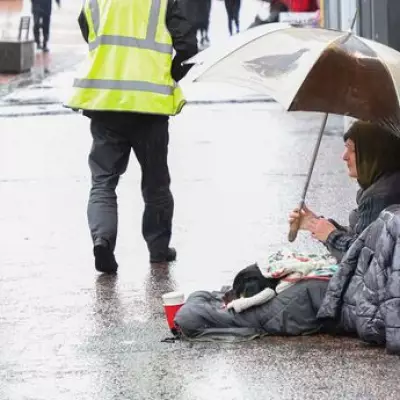
Millions of middle-class households across Britain are unknowingly heading towards financial turmoil, according to alarming new research that reveals even families earning substantial incomes are struggling to stay afloat.
The stark findings from the National Institute of Economic and Social Research (NIESR) paint a worrying picture of families earning between £35,000 and £60,000 annually who are completely unaware of their precarious financial position.
The Invisible Financial Crisis
Professor Adrian Pabst, NIESR's deputy director for public policy, delivered a sobering assessment: "We're witnessing a silent crisis unfolding behind closed doors. These aren't households living in obvious poverty, but families who've worked hard and played by the rules, only to find their financial security rapidly evaporating."
The research identifies several critical pressure points pushing middle-income families to the brink:
- Soaring energy bills consuming disproportionate amounts of household income
- Rising mortgage costs as fixed-rate deals expire
- Stagnant wages failing to keep pace with inflation
- Unexpected expenses creating financial domino effects
The Reality Behind the Numbers
Professor Pabst explains the psychological dimension of this crisis: "Many families are in denial about their financial vulnerability. They look at their respectable salaries and assume they're secure, but they're not accounting for how dramatically their essential costs have increased."
The situation has become so severe that approximately six million UK households are now reporting they're unable to cover unexpected expenses, while nearly five million are falling behind on essential bill payments.
A Perfect Storm of Financial Pressures
Several converging factors have created this middle-class emergency:
- Energy cost explosion pushing many into fuel poverty despite above-average incomes
- Housing cost crisis affecting both renters and homeowners facing mortgage renewal shocks
- Food inflation dramatically reducing disposable income for non-essential spending
- Transportation costs making commuting increasingly unaffordable
The most vulnerable groups include single-income families, households with multiple children, and those living in regions with higher living costs but lower wage levels.
Beyond the Obvious Impact
This financial strain extends beyond mere numbers, affecting mental health, family relationships, and long-term financial planning. Many families are dipping into savings meant for retirement or their children's education simply to cover monthly essentials.
Professor Pabst warns: "This isn't just about current financial stress. We're creating a future where middle-class families will reach retirement with inadequate savings and limited options, potentially creating a cascade of social problems for decades to come."
The research serves as a crucial wake-up call for policymakers and families alike, highlighting that financial vulnerability no longer discriminates by income bracket in today's challenging economic climate.





